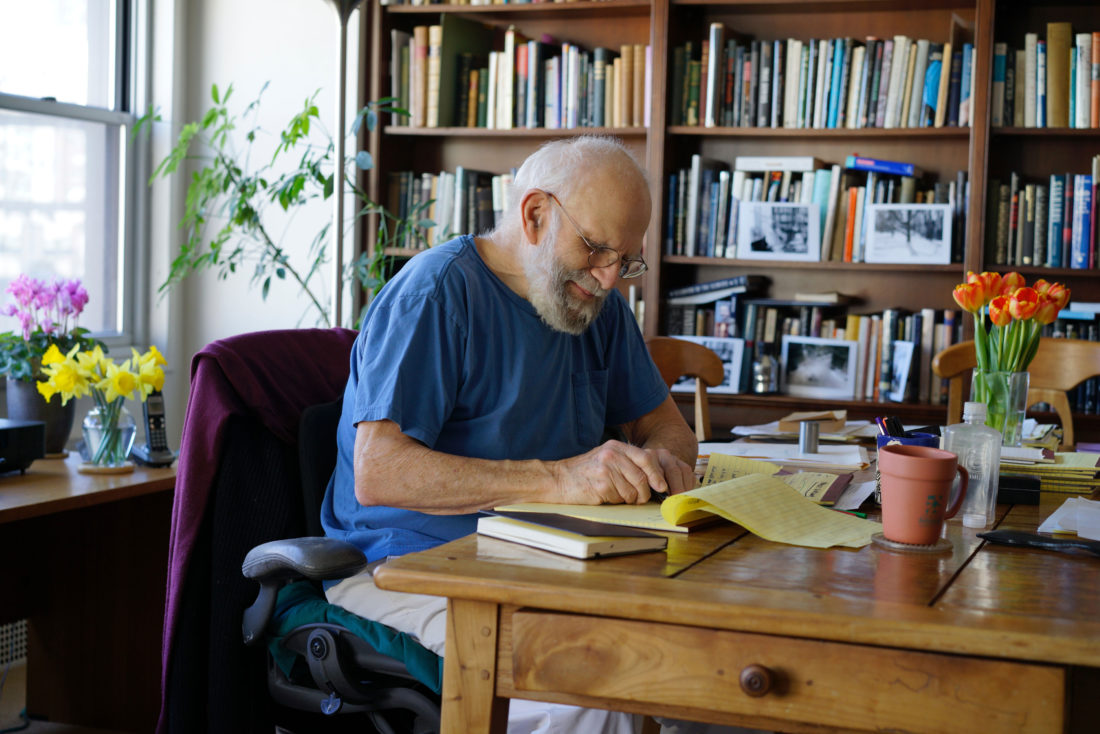I remember seeing and enjoying Penny Marshall’s Awakenings — based on the 1973 book of the same name by neurologist Dr. Oliver Sacks — when it debuted on home video in 1991, but I never gave much thought to its real-life figures. Seeing it again circa 2005, I once more connected with the film, but, as before, didn’t consider the dramatized events, doctors or patients beyond the closing credits. Now, some years later, the opportunity to correct my earlier mistakes has fallen into my lap in the form of veteran documentarian Ric Burns’ wonderful Oliver Sacks: His Own Life.
Sacks is quite a character, and certainly not your typical neurologist. Burns allows the chronically underappreciated doctor to tell the story of his often turbulent life largely in his own words, which are eloquent and evocative. They’re also full of wholehearted bravado, and yet often brimming with quiet, reserved contemplations. Touching on his upbringing in England, outing as a gay man, migration to California, amphetamine addiction and eventual arrival in New York City, His Own Life chronicles an unlikely saga for such a brilliant mind — albeit a story that’s both a product of its time and one that bucks the system at every turn.
Sacks, who was portrayed by Robin Williams in Awakenings, is now considered a pioneer but was largely dismissed for much of his career. His approach to neuroscience — getting to know his patients by talking with them about their symptoms and observing their behaviors instead of simply diagnosing them and moving on — was unpopular in the rapidly evolving field. When he began detailing case studies in books like Awakenings, his peers shunned his findings as pseudoscience lacking in quantitative data.
Sacks is now vindicated, and His Own Life allows this mighty and immensely generous man to reflect on how his troubled life helped shape him into the person he became both personally and professionally. While Burns may not break new ground in the documentary form, the story at hand is so powerful that he doesn’t have to innovate. Simply allowing Sacks to read occasional selections from his autobiography — and, in essence, narrate his own story — proves surprisingly effective. Filmed shortly before Sacks died of cancer in 2015, these scenes allow him to write his own personalized epitaph, using the beautiful prose for which he’s known. By doing so in his own vivid and expressive voice, it ensures that we, and those he helped, will not soon forget him.
Available to rent via grailmoviehouse.com



Before you comment
The comments section is here to provide a platform for civil dialogue on the issues we face together as a local community. Xpress is committed to offering this platform for all voices, but when the tone of the discussion gets nasty or strays off topic, we believe many people choose not to participate. Xpress editors are determined to moderate comments to ensure a constructive interchange is maintained. All comments judged not to be in keeping with the spirit of civil discourse will be removed and repeat violators will be banned. See here for our terms of service. Thank you for being part of this effort to promote respectful discussion.